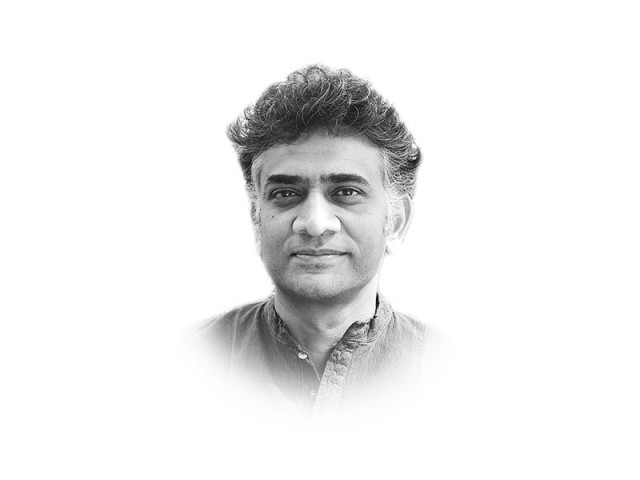Gujarat not famous for its soldiers
Gujaratis need not feel ashamed of the lack of this martial tradition

The writer is the editor and translator of Why I write: Essays by Saadat Hasan Manto, published by Westland in 2014. He is executive director of Amnesty International India. The views expressed here are his own.
aakar.patel@tribune.com.pk
The answer to Yadav’s question is: a few but not many. And the reason is that not many Gujaratis join the army. I had researched this a few years ago. In 2009, only 719 Gujaratis enrolled in an army of over a million soldiers. This number was a record and the highest ever sent from Gujarat and it came after a big awareness campaign. In the preceding two years, 2008 and 2007, the number of Gujarati recruits was only 230.
Gujarat has more than six crore people, but there have been more foreigners in India’s army than Gujaratis. This is a fact. Nepal, a nation less than half the size of Gujarat, has sent many times more soldiers to fight for India than Gujaratis. The Gurkha regiments are in fact one of the finest fighting units anywhere in the world.
In contrast, Gujarat has no tradition of soldiery and this is not totally unique. Recruitment to the army in India and also in Pakistan is unevenly spread. Ghalib said that “sau pusht se, hai pesha e aaba sipahgari” (for 100 generations, the profession in my family has been soldiery). No Gujarati community can claim that, though Marathas and Punjabis and Gurkhas can say it.
This has nothing to do with being brave, it has mostly to do with opportunity and then tradition. The British raised most of their mercenary army from the parts that they originally captured. There are some exceptions. The British turned to the Punjabi Hindu, Muslim and Sikh in large numbers after the 1857 mutiny which involved the Bengal army. These Punjabis were mostly Jats (it was observed by many in the Pakistan Army that Gen Ziaul Haq came from the non-martial Arain community). However most of the recruitment had begun much before the mutiny.
Near my house, which is in a military area in Bangalore, the Madras Sappers unit was raised and has continuously served the Indian army since 1780. When such a long tradition is established, the work is carried on from father to son. This is not possible in areas which have no historical recruitment.
There are some ‘martial’ communities in Gujarat, and these are the ones that join the army. Among them are the durbar (Rajput) communities, with names like Jadeja and Solanki. And so the number of martyrs cannot be zero, even though it is small. Another reason Gujarat has produced few soldiers is that it has not seen much war.
Gujarat was conquered by Allauddin Khilji in 1297. After this, though there was some fighting in Gujarat, very little of it involved Gujaratis. The northern Muslims fought among each other till Akbar took Ahmedabad and the Mughals kept Gujarat. Then the Marathas captured large parts of it, and they still hold onto Baroda. Then the English took over, starting at Surat. In very little of this fighting were Gujaratis involved.
Another reason for the lack of Gujaratis in the army is that the state has a powerful mercantile ethic. This stresses pragmatism and does not give much importance to honour. Many ‘martial’ communities will scoff at this ethic but it is the reason Gujarat has produced great businessmen. The ability to compromise instead of standing fixed on honour is also the reason Gujarat has produced many great statesmen. Before independence, three of India’s four greatest political figures — Gandhi, Jinnah and Patel — were Gujaratis.
It is fine for people to be offended at Yadav’s statement, but it is based on some fact and reality. Gujaratis need not feel ashamed of the lack of this martial tradition. They contribute to their country in other ways. And of course, they can also claim that while they may not have produced many martyrs, they produced the greatest one: Gandhi.
Published in The Express Tribune, May 15th, 2017.
Like Opinion & Editorial on Facebook, follow @ETOpEd on Twitter to receive all updates on all our daily pieces.














COMMENTS
Comments are moderated and generally will be posted if they are on-topic and not abusive.
For more information, please see our Comments FAQ